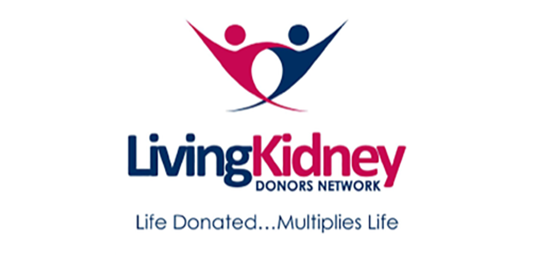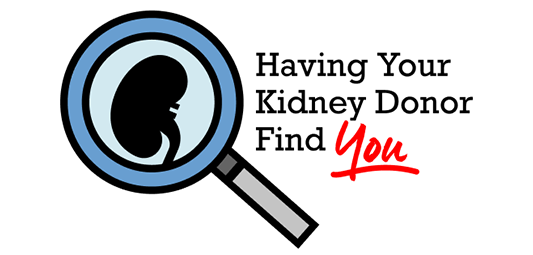Who Can Be a Living Donor & How are they Evaluated?
(Para leer esta página en español, haga clic aquí.)
In general, to be a living donor an individual must be physically fit, in good health, free from high blood pressure, diabetes, cancer, kidney disease and heart disease. Individuals considered for living donation are usually between 18-60 years of age. (Living donors older than 65 years of age have successfully donated.) Routine tests are always performed to determine not only the potential donor's level of physical and mental health, but also their compatibility with the patient awaiting a transplant. Results of these tests will determine if someone could donate. Living donation occurs only when there is informed consent that is freely given. This means, you should agree to be a living donor only after you have been fully educated on the subject, its risks and rewards, and when your agreement to donate is without pressure from other people. The following are just some of the tests a donor could expect to have during the evaluation process. Blood Tests
Initially, the living donor undergoes a blood test to determine blood type compatibility with the recipient.
Although transplants are done with different blood types for the recipient and the donor, it is easier and preferable to have compatible blood types.
Tissue Typing
The donor's blood is drawn for tissue typing of the white blood cells. This test checks the tissue match between six cells of each of the donor and recipient. While still required as part of the transplant process, tissue typing is rarely a consideration for living organ donation. Transplants outcomes are not significantly different if a patient is a 0 – 6 match or a 5 – 6 match.
Cross Matching
Cross matching is a very sensitive and final test performed on a kidney donor and a particular recipient. Laboratory techniques for cross matching have been refined to the point owhere they now enable scientists and physicians to define how a kidney transplant recipient may respond to particular cells or proteins of the kidney donor. These advancements in testing have led to very accurate tests that were not available even a few short years ago.
The basic cross match test involves a mixing of cells and serum to determine whether or not the recipient of a kidney will respond to the transplanted organ by rejecting it. In recent years, scientists have applied more intricate tests and obtained more accurate results of cross matching. It is now possible to better indentify a recipient who might reject an organ and therefore preclude a transplant that might end up not succeeding. Thus, improved kidney transplant outcomes may ensue because mediciene can better determine and predict how the recipient may respond to the donated organ. Cross match testing, therefore, has evoloved and improved long-term results.
Cross match testing, which involves several different phases and, as many as 10 to 15 different tests, comes down to a fairly simple final result. Either the cross match is positive or negative. A positive cross match means that the recipient has responded that it is likely to reject the donor in which case the transplant should not be carried out. A negative cross match means that the recipients’ blood has not reacted to the donor in which case transplantation should be safe. While this language may appear a bit backwards, we should all think of a cross match as the test indicating a “no go” or “go” for a transplant operation. A positive cross match (“no go”) essentially says the following to a recipient: you will respond to the donor organ by rejecting it and the operation should not be performed. A negative cross (“go”) match says to the recipient: you are not likely to reject the donor organ and the operation should be performed. If we look at the cross match in this way, the positive and negative results make sense to all concerned.
On balance, a well matched kidney is one in which the blood type between the donor and recipient are compatible, the tissue typing well defined and hopefully well matched and all cross match studies are negative. Application of good matching studies in clinical kidney transplantation has allowed for excellent results using living donor and cadaveric organs and has permitted safe kidney transplantation for thousands of patients with end-stage renal failure. Antibody Screen
An antibody is a protein substance made by the body's immune system in response to an antigen (a foreign substance; for example, a transplanted organ, blood transfusion, virus, or pregnancy). Because the antibodies attack the transplanted organ, the antibody screen tests for panel reactive antibody (PRA). The white blood cells of the donor and the serum of the recipient are mixed to see if there are antibodies in the recipient that react with the antigens of the donor. This test is done on the recipient . If the recipient has a high level of antibodies, match with a potential donor may be more difficult.
Urine Tests
In the case of a kidney donation, urine samples are sometimes collected for 24 hours to assess the donor's kidney function.
X-Rays
A chest X-Ray and an electrocardiogram (EKG) are performed to screen the donor for heart and lung disease.
Arteriogram
This set of tests involves injecting a liquid that is visible under X-Ray into the blood vessels to view the organ to be donated. This procedure is usually done on an outpatient basis, but in some cases it may require an overnight hospital stay. All donors are not subject to having this test.
Psychiatric and/or psychological evaluation
The donor and the recipient may undergo a psychiatric and/or psychological evaluation.
Gynecological examination
For all female donors, a complete gynecological examination is required. For females 32 years and older, a mammogram is also required. In general, the transplant nurse coordinator, in conjunction with your physician, can arrange testing.
Final blood test
Usually completed within 48 hours of surgery, the last blood test is another crossmatch. It is the final comparison of the donor's blood cells and recipient's blood serum to make Risks and Potential Complications
The best source of information about expected donor outcomes is your transplant team. In addition, it’s important to take an active role in learning more about these potential surgical risks and long term complications:
Psychosocial Factors
- I am intellectually ready - I have studied living organ donation and I understand the process, including the risks involved.
- I am emotionally ready - I have prepared myself emotionally for living donation, including the possibility that the donor may change his /her mind, that the donation may not be successful and that I may be harmed in the process.
- I am physically ready - I am in great physical shape because I need to withstand major surgery, I need to have a healthy organ to donate, and I need to continue to live with one kidney.
- I am financially ready - I have the financial resources such as savings and paid time-off (vacation, sick days, short-term disability, etc.) to tide me over while I am being tested, in the hospital for surgery, and away from work while I recover. I also have insurance protection in the event I die, am disabled by the donation, or have ongoing medical needs following donation.
- o I am spiritually ready - I am driven to donate by the right motives.
© Living Kidney Donors Network | A Nonprofit 501(c)3 Organization | Contact Us



